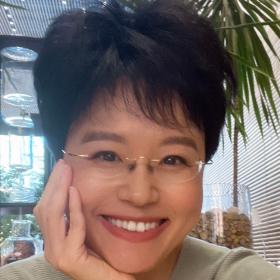Degrees
PhD, University of California, Irvine
BA, MPhil, University of Hong Kong
My research focuses on late 19th to early 20th century China. I am particularly interested in late imperial Chinese intellectual history, philosophical hermeneutics, aesthetic theory, and translation studies.
My first monograph, Affective Betrayal: Mind, Music, and Embodied Action in Late Qing China (2024), uses "affect" as an analytical category to explicate the fragility and fragmentation of Chinese political modernity. The book begins with a simple observation: after the 1895 Sino-Japanese War, China’s leading political reformer Liang Qichao (1873-1929) was careful to present modern political knowledge in musical and visual representational formats which were calculated to stimulate people’s bodily senses. By expanding the reception of textual knowledge from reading to listening and visualizing experiences, Liang generated an epistemic shift, if not an internal intellectual transition, alongside China’s modern political reform. In recent years, scholars of Western political science repeatedly emphasize the importance of recognizing and incorporating affect as a constitutive component of democratic politics. While I am familiar with recent developments in the “history of emotions” and “affect studies” that center on the U.S. and Europe, my emphases and methods differ from those used in studies of Western cultures. In Affective Betrayal, I delineate the series of hitherto repressed academic practices, marginalized philosophical positions, and underrepresented moral traditions that Liang sought to restore, enlist, and incorporate in China’s incipient democratic movement. By tracing the “affective origins” of Chinese political modernity, I argue that the formation of China’s modern “political” order was contingent on the radical restructuring of the internal moral, philosophical, and intellectual order. But later as Liang tried to conjoin Confucian morality and liberal democracy in a symbiotic relationship, he ran the risk of exposing some inherent contradictions, if not hidden anxieties, between these two systems of thought. Beyond disrupting the stability of China’s burgeoning modern political order, these conflicts precipitated the crisis of meaning China experienced during the early 20th century, as well as the cultural predicament the country faces at present.
Currently I am working on two new projects. The first project explores the influences the Ming philosopher Wang Yangming’s (1472-1529) moral philosophy exerted on the formation of intellectual, literary, and political culture in the Qing Dynasty (1644-1911). Bloomsburg Publishing, in addition, will launch a six-volume book series on the Cultural History of Confucianism, from antiquity to the 21st century. Dr. On-cho Ng from Penn State University and I serve as the editors for Volume Four, a book that focuses on the Ming and the Qing Dynasties.
